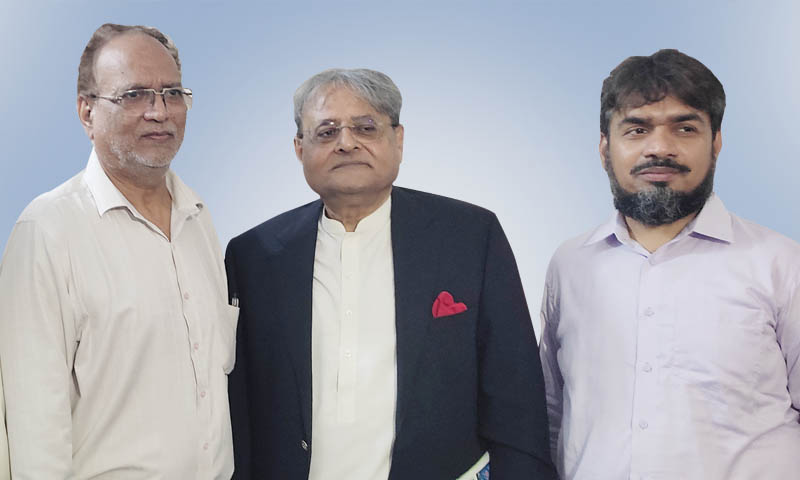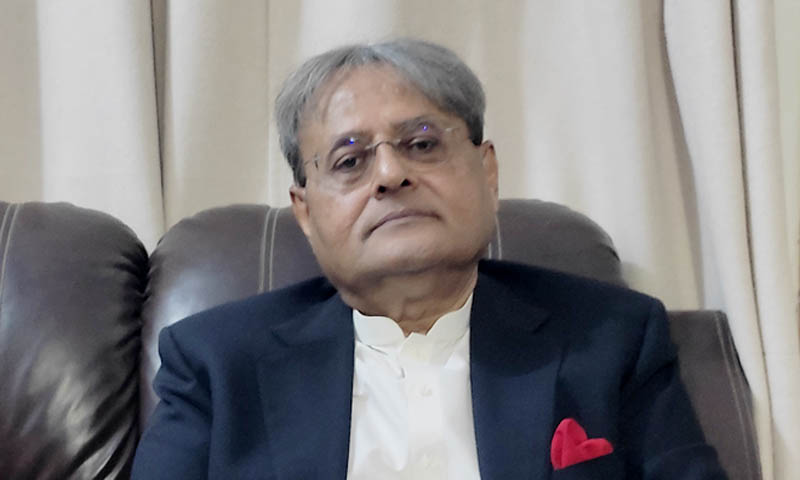Engr. Sohail W. H. Siddiqui talks to Engineering Post
Engr. Sohail W. H. Siddiqui, the Executive Vice Chairman of THK Group, recently attended an event organized by Cosmix Engineering, where he expressed his appreciation for the ceremony and highlighted critical issues facing Pakistan’s industrial and energy sectors. With a distinguished career that includes serving as the Federal Minister for Petroleum & Natural Resources, Chairman of Pakistan State Oil (PSO), Managing Director and CEO of Siemens West Asia and Pakistan, and President of both the Overseas Investors Chamber of Commerce & Industry (OICCI) and the Management Association of Pakistan (MAP), Engr. Siddiqui’s insights carry significant weight in discussions about the country’s future.
During an exclusive conversation with Engineering Post Engr. Sohail W. H. Siddiqui underscored a pressing concern: the lack of progress on import substitution in Pakistan. He emphasized that the country still heavily relies on imports, a situation that has stymied the growth of local manufacturing. “We continue to import products that could easily be made here from raw materials. This missing policy of import substitution is why our manufacturing sector is struggling,” he remarked. According to him, the absence of a robust import substitution strategy is a significant factor behind the departure of major companies from Pakistan and the increasing dependency on imported goods. Engr. Sohail W. H. Siddiqui advocated for a stronger focus on import substitution as a means to reduce the country’s trade deficit and strengthen the local economy. He pointed to examples of countries like Indonesia, Malaysia, India, Bangladesh, and China, which have successfully implemented import substitution policies to bolster their manufacturing sectors and reduce reliance on foreign goods. “If we want to reduce our trade deficit and build a self-reliant economy, we must start working on this now,” he stated, stressing the urgency of developing such policies. He was strongly of the view that without changing the present system of governance, nothing good is expected.

He also expressed concern over the lack of intent among the leadership and people to take significant steps toward this goal. “The intent is still not there for strengthening the country,” Engr. Sohail W. H. Siddiqui lamented. He called for collective efforts from both the leadership and the populace to work towards making Pakistan a stronger nation. “We need to unite and change the system for the benefit of the country,” he urged.
Turning to the energy sector, Engr. Sohail W. H. Siddiqui highlighted the persistent issue of circular debt and the inefficiencies in power generation and distribution. He criticized the current situation where, despite paying substantial capacity charges for electricity, the country continues to suffer from load shedding. “It is unfathomable that we are still facing load shedding while paying so much for electricity,” he said.
He further argued that electricity tariffs should have decreased over time due to advancements in power generation technology, but instead, they have increased. He attributed this to the incompetence of those managing the sector. “Our tariff has increased because inept people are working on it. Just look at the Neelum-Jhelum project, where a tunnel collapsed due to low-quality work,” he pointed out.
Engr. Sohail W. H. Siddiqui also mentioned the enormous potential for hydroelectric power in Pakistan, stating that while the country’s current energy requirement is around 30,000 MW, it could generate over 80,000 MW from hydropower alone. Despite this, the nation continues to experience power shortages. “The solutions are there, but people are not sincere enough with the country to work on them,” he concluded.







